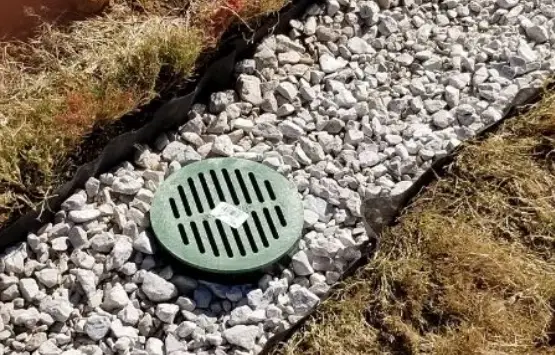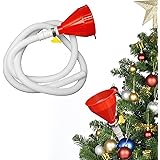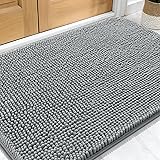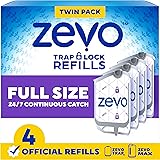Looking to improve your drainage system? Consider the pros and cons of French drains. This popular solution can effectively divert excess water away from your property, preventing potential water damage, flooding, and soil erosion. French drains have gained recognition for their ability to efficiently channel water, but like any solution, they have their downsides too.
In this article, we’ll delve into the advantages and drawbacks of French drains, helping you make an informed decision for your drainage needs. So, let’s explore the pros and cons of French drains and determine if they are the right fit for you.
Pros and Cons of French Drain: Everything You Need to Know
A French drain is a drainage system that helps manage water accumulation and prevent basement flooding in residential and commercial properties. It consists of a trench filled with gravel or rock, along with a perforated pipe that redirects water away from the building. French drains have become popular due to their effectiveness in preventing water damage.
However, like any other drainage system, they come with their own set of advantages and disadvantages. In this article, we will explore the pros and cons of French drains to help you make an informed decision for your property.
Pros of French Drain
1. Effective Water Management
One of the primary advantages of a French drain is its ability to efficiently manage water. By capturing and redirecting excess water from rainstorms, melting snow, or groundwater, it helps prevent the accumulation of water near the foundation of your property.
This, in turn, reduces the risk of basement flooding, water damage, and foundation issues. The gravel or rock in the trench allows water to filter through while the perforated pipe carries it away, ensuring your property remains dry and safe.
2. Versatility
French drains can be installed in various locations on your property, making them a versatile drainage solution. They can be placed around the perimeter of your house, near downspouts, or even in specific areas where water tends to accumulate.
This flexibility allows for customized drainage systems that address the specific needs of your property.
3. Cost-Effective
Compared to other drainage systems, French drains are relatively cost-effective. The materials required, such as gravel, piping, and fabric, are affordable and readily available.
Additionally, the installation process is relatively straightforward, which can help save on labor costs. Investing in a French drain can prove to be a cost-effective solution in the long run by preventing costly repairs due to water damage.
4. Low Maintenance
Once a French drain is installed properly, it requires minimal maintenance. The design of the system, with the use of durable materials, ensures longevity and reduces the need for frequent upkeep.
Periodic inspection of the drain and removal of any debris are usually sufficient to keep the system functioning effectively. This low maintenance aspect makes French drains an attractive option for homeowners and property managers.
5. Environmentally Friendly
French drains are environmentally friendly as they help prevent water pollution and soil erosion. By redirecting excess water away from your property, they prevent it from seeping into the ground and carrying pollutants with it.
Additionally, the use of gravel or rock in the drain allows water to filter naturally, removing sediments and contaminants before it reaches groundwater sources. This eco-conscious drainage solution contributes to the overall health of the environment.
Cons of French Drain
1. Professional Installation Required
While the concept of a French drain seems relatively simple, proper installation is crucial for its effectiveness. It requires professional expertise to accurately assess the layout of your property, determine the ideal location for the drain, and ensure proper slope and positioning.
Improper installation may lead to ineffective drainage, further water damage, or even compromised foundation stability. Therefore, it is recommended to hire a professional contractor to install a French drain.
2. Potential for Clogging
Over time, French drains may experience clogging due to the accumulation of debris, silt, or sediment. This can reduce their effectiveness in water management.
Regular maintenance, including periodic inspection and cleaning, is necessary to prevent clogging and maximize the efficiency of the drainage system. Ignoring maintenance can result in water backup and potential damage to your property.
3. Not Suitable for All Soil Types
French drains may not be suitable for all soil types. Clay soils, for example, hold water and can impede the proper functioning of a French drain.
In such cases, alternative drainage solutions may need to be considered. It is important to assess the soil composition of your property before deciding on a French drain installation.
4. Disposal of Redirected Water
Redirecting water away from your property is important, but it raises the question of where the water should be discharged. It is essential to consider local regulations and environmental impact when deciding on the discharge point for the redirected water.
In some cases, additional measures or permits may be required to ensure proper water disposal.
5. Potential for Pipe Damage
The perforated pipe used in a French drain system may be susceptible to damage over time. Tree roots, shifting soil, or external pressure can cause cracks or breakage in the pipe, affecting its functionality. Regular inspection of the pipe and prompt repairs can help avoid any major issues.
It is advisable to use high-quality pipes and consult professionals for installation and maintenance to minimize the risk of pipe damage.
French drains offer numerous benefits in managing water accumulation and preventing damage to your property. Their effectiveness, versatility, cost-effectiveness, and eco-friendliness make them an attractive drainage solution.
However, it is important to consider the potential drawbacks such as professional installation requirements, maintenance needs, soil suitability, water disposal, and pipe damage. By weighing the pros and cons, consulting professionals, and assessing your property’s specific needs, you can make an informed decision regarding the installation of a French drain.
Remember, proper installation and regular maintenance are key to maximizing the life and functionality of your French drain system.
Frequently Asked Questions (FAQs)
A French drain is a trench filled with gravel or rock and containing a perforated pipe. It is designed to redirect water away from a building’s foundation or other areas prone to water accumulation. The advantages of a French drain include:
– Preventing water damage: French drains help to prevent water accumulation and subsequent damage to foundations, basements, and crawl spaces.
– Improving drainage: By redirecting water away from problem areas, French drains improve overall drainage on a property.
– Reducing soil erosion: By controlling the flow of water, French drains minimize soil erosion, which can be particularly beneficial on sloped landscapes.
– Preventing mold and mildew growth: By eliminating excess water, French drains help to create a drier environment that discourages the growth of mold and mildew.
While French drains offer several advantages, there are also a few potential disadvantages to consider:
– Cost: Installing a French drain can be relatively expensive, depending on factors such as the size and complexity of the project.
– Maintenance: French drains require regular maintenance to ensure that they remain free of debris and obstructions. Neglecting maintenance can reduce their effectiveness.
– Initial excavation: Installing a French drain typically requires digging a trench, which may disrupt landscaping or require additional work to restore the area after installation.
While it is possible for a knowledgeable homeowner to install a French drain, it is generally recommended to seek professional help.
Professional installation ensures proper design, construction, and optimal functionality of the French drain system.
While French drains are effective in managing various drainage problems, they may not always be the best solution. Factors such as the source of water accumulation, soil composition, and site-specific conditions should be considered.
It is advisable to consult with a professional to determine the most suitable drainage solution for your specific situation.
When properly installed and maintained, a French drain system can last for several decades. Regular inspections and maintenance, such as clearing debris and ensuring proper pipe functioning, can help extend its lifespan.
Yes, a French drain can become clogged over time if not adequately maintained. Regular inspections and cleaning are necessary to prevent debris, roots, or sediment from obstructing the perforated pipe and reducing its effectiveness.
While French drains are effective in managing many basement water problems, they may not be a complete solution for all situations.
If water is entering through cracks in the foundation or due to other structural issues, additional waterproofing methods may be required in conjunction with a French drain.
Yes, there are alternative drainage solutions available. Some common alternatives include surface grading, downspout extensions, gutter maintenance, and retaining walls. The most suitable alternative depends on the specific drainage issue and the site’s conditions.
Consulting with a professional can help determine the best solution for your needs.
Final Thoughts
French drains are a popular solution for managing excess water around homes and properties. The main advantage of a French drain is its ability to effectively redirect water away from the foundation, preventing potential damage caused by flooding or water accumulation. Additionally, French drains are relatively cost-effective and can be installed quickly.
However, like any drainage system, French drains also have their drawbacks. One limitation is that they require regular maintenance to ensure they remain clear of debris and don’t become clogged. Another disadvantage is that French drains may not be suitable for all soil types, as heavy clay soil can impede the proper functioning of the drain.
To summarize, the pros of French drains include efficient water redirection, affordability, and quick installation. On the other hand, the cons involve the need for regular maintenance and potential limitations based on soil type. When considering the pros and cons of French drains, it’s essential to assess the specific needs and conditions of your property before deciding on the best drainage solution to implement.
Auto Amazon Links: No products found.
VEVOR Tree Watering Bags Slow Release, 4 Pack 16 Gallons Tree Watering Ring, Reusable Refillable Tree Irrigation Ring Water Bags, Heavy Duty Watering System for Shrub Tree Root Drip Irrigation
$29.99 (as of February 18, 2026 04:14 GMT +00:00 - More info- Product prices and availability are accurate as of the date/time indicated and are subject to change. Any price and availability information displayed on [relevant Amazon Site(s), as applicable] at the time of purchase will apply to the purchase of this product.
Perfect Plants Christmas Tree Saver 8oz. | Easy Use Xmas Tree Preserver Food | Have Healthy Green Christmas Trees All Holiday Season
$16.99 (as of February 18, 2026 04:14 GMT +00:00 - More info- Product prices and availability are accurate as of the date/time indicated and are subject to change. Any price and availability information displayed on [relevant Amazon Site(s), as applicable] at the time of purchase will apply to the purchase of this product.
Mini Decorative Watering Can, Set of 6, Height 1.97 inch, Cute Metal Jug for Hand Crafts,Garden Theme Parties and Home Decor
$8.99 (as of February 18, 2026 04:14 GMT +00:00 - More info- Product prices and availability are accurate as of the date/time indicated and are subject to change. Any price and availability information displayed on [relevant Amazon Site(s), as applicable] at the time of purchase will apply to the purchase of this product.
Joewuzun 1.5m Christmas Tree Watering Funnel Longer Tree Funnel Watering Spout Tree Watering Device Christmas Tree Long Funnel Watering System Xmas Plant Watering Tool for Large Indoor Outdoor Plants
$9.99 (as of February 18, 2026 04:14 GMT +00:00 - More info- Product prices and availability are accurate as of the date/time indicated and are subject to change. Any price and availability information displayed on [relevant Amazon Site(s), as applicable] at the time of purchase will apply to the purchase of this product.
Forest Fresh Christmas Tree Preservative Tablets – Tree Water Additive for Live Fresh-Cut Trees – Keeps Trees Hydrated and Reduces Needle Drop – Non-Toxic, Made in USA – 1 Packet (8 Tablets)
$5.99 (as of February 18, 2026 04:14 GMT +00:00 - More info- Product prices and availability are accurate as of the date/time indicated and are subject to change. Any price and availability information displayed on [relevant Amazon Site(s), as applicable] at the time of purchase will apply to the purchase of this product.
TERRO Ant Killer Bait Stations T300B - Liquid Bait to Eliminate Ants - Bait System - 12 Count Stations for Effective Indoor Ant Control
$11.97 (as of February 18, 2026 04:14 GMT +00:00 - More info- Product prices and availability are accurate as of the date/time indicated and are subject to change. Any price and availability information displayed on [relevant Amazon Site(s), as applicable] at the time of purchase will apply to the purchase of this product.
OLANLY Dog Door Mat for Muddy Paws 30x20, Absorbs Moisture and Dirt, Absorbent Non-Slip Washable Doormat, Quick Dry Chenille Mud Mat for Dogs, Entry Indoor Entryway Carpet for Inside Floor, Grey
$9.49 (as of February 18, 2026 04:14 GMT +00:00 - More info- Product prices and availability are accurate as of the date/time indicated and are subject to change. Any price and availability information displayed on [relevant Amazon Site(s), as applicable] at the time of purchase will apply to the purchase of this product.
Zevo Flying Insect Trap Official Refill Cartridges - Fits Both Zevo Trap & MAX Indoor Fly Trap - Authentic Trap+Lock Technology to Catch Gnats, House & Fruit Flies (4 Official Refill Cartridges)
$14.97 (as of February 18, 2026 04:14 GMT +00:00 - More info- Product prices and availability are accurate as of the date/time indicated and are subject to change. Any price and availability information displayed on [relevant Amazon Site(s), as applicable] at the time of purchase will apply to the purchase of this product.
HOME GROWN Zinnia Dahlia Seeds Pack for 2026 Non GMO 524 Flower Seeds | Vibrant Zinnia Elegans for Pollinator Gardens, Borders & Containers | Easy-to-Grow Outdoor Blooms
$6.99 (as of February 18, 2026 04:14 GMT +00:00 - More info- Product prices and availability are accurate as of the date/time indicated and are subject to change. Any price and availability information displayed on [relevant Amazon Site(s), as applicable] at the time of purchase will apply to the purchase of this product.
Wagner's 53002 Farmer's Delight Wild Bird Food with Cherry Flavor, 10-Pound Bag
$12.48 (as of February 18, 2026 04:14 GMT +00:00 - More info- Product prices and availability are accurate as of the date/time indicated and are subject to change. Any price and availability information displayed on [relevant Amazon Site(s), as applicable] at the time of purchase will apply to the purchase of this product.











